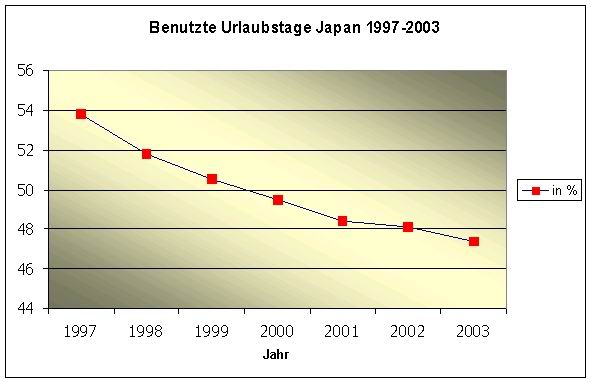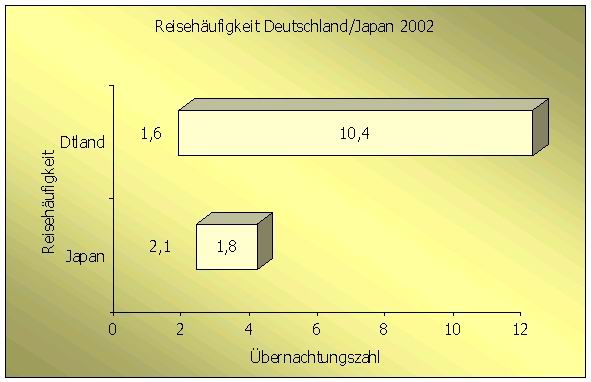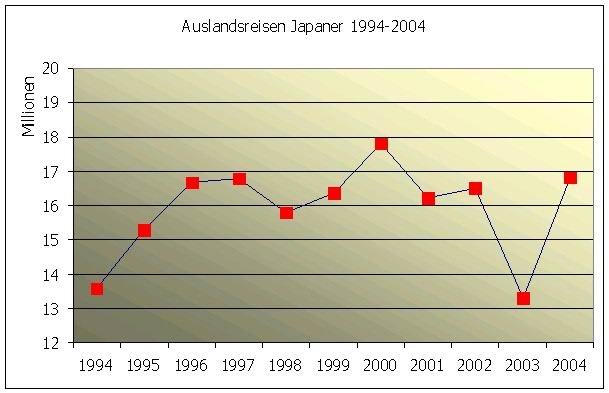Best viewed with Internet Explorer.
These pages
are ONLINE at: www.tourism-international.de
2.
Leisure and Tourism in
the
Japanese society
|
“The family holiday is not unknown, .. but in general
such trips tend to be much shorter than .. in Europe. Two nights away is
perhaps typical, and the father of the family will be itchy to get back to
work.” (Hendry 1987, 165)
|
Long absence from work by making full use of granted
paid holiday is still frowned upon. Unlike western positive images of otium
as 'recharging the battery' and ‘getting new ideas’, i.e. self-actualisation
through leisure, leisure activities and the necessary absence connected to it
are seen as ‘letting down the collegues’, only partly redeemed by buying omiyage
(souvenirs) for the left-behind.
“A feeling of guilt in seeking mere pleasure dies hard
within a culture of hard work. .. And this axiom is fortified by people’s
concern for, and attention to, others in close proximity, such as family,
relatives, neighbours, and fellow workers.” (Kajiwara 1997, 169)
Paid
holidays are granted to employees (app. 20 days/year).
It is however socially impossible to use the full
amout.

© Arlt 2005 after (TIJ 2004)
Japanese
travel less and much shorter than the inhabitants
of other OECD countries, travel motive is often
an event: 3,9 nights p.P. p.y., compared to 17,1
(Germany) and 16 (France, GB). Japanese overnight
stays per year decreased year-by-year since 1991
(OECD 2002).

© Arlt 2005 after (TIJ 2004)
App. 13% of the Japanese
travel across the border once a year.

© Arlt 2005 after (MLIT 2005)

Contact: wolfgang.arlt@fh-stralsund.de
Tel. +49 (3831) 456 961
|